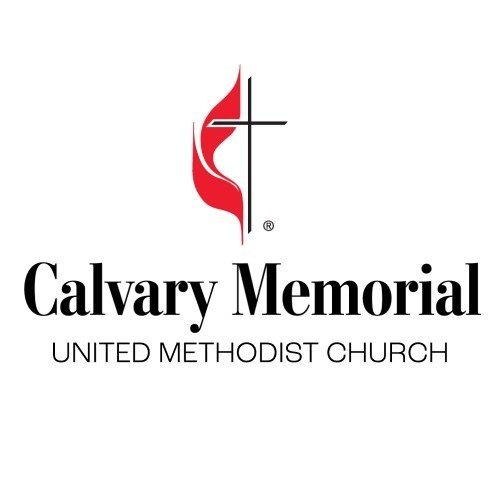What We Believe
Our mission at Calvary Memorial United Methodist Church is to provide hospitality, healing, and hope to make disciples for Jesus Christ for the transformation of the world.
We believe…
Triune God. God is one God in three persons: Father, Son, and Holy Spirit.
The Bible. The Bible is the inspired word of God and contains all that is necessary for salvation.
Salvation through Jesus Christ. God’s redeeming love works to save sinners through Jesus’ incarnate life and teachings, through his atoning death, his resurrection, his sovereign presence through history, and his promised return.
Grace. God’s love is offered freely and continually to humanity regardless of action or thought. God seeks to have a personal relationship with everyone every where.
Wesleyan Grace. John Wesley, the founder of Methodism, understood grace through a three fold lens prevenient, justifying, and sanctifying grace.
Prevenient Grace. The belief that God’s grace is present in everyone’s life at all times calling each of us into a relationship with God.
Justifying Grace. Is the personal acceptance of God’s saving grace through Jesus Christ in one’s life and in turn one seeks to respond to that grace.
Sanctifying Grace. We are made whole by God in spite of our inability to live perfectly into our relationship with God. Sanctifying grace brings full circle the completion of grace because it makes us whole in the eyes of God.
Sacraments. The UMC recognizes two sacraments: Holy Baptism and Holy Communion. Both serve as outward signs of an inward change.
Baptism can be performed on infants and adults. It is only needed once and represents a conscious turn from sin toward God and one’s need for grace among adults. During infant baptism the sponsor on behalf of the child acknowledges God’s act of grace and professes a desire and willingness to raise the child up in faith so they he or she may grow to consciously know God’s grace as well.
Communion is a meal shared among those who wish to know the love, grace, and redemptive nature of Jesus Christ, both baptized and unbaptized alike. While the UMC does not believe the bread and juice become the literal body and blood of Christ we do we believe he is present at the table. The act of communion within the community of faith serves as a reminder of the hope found in Christ, a hope that we share not just with the Christians to our left or right but with those in the past, those currently around the world, and those who are yet to come.
Social Justice. "Taking an active stance in society is nothing new for followers of John Wesley. He set the example for us to combine personal and social piety. Ever since predecessor churches to United Methodism flourished in the United States, we have been known as a denomination involved with people's lives, with political and social struggles, having local to international mission implications. Such involvement is an expression of the personal change we experience in our baptism and conversion.
The United Methodist Church believes God's love for the world is an active and engaged love, a love seeking justice and liberty. We cannot just be observers. So we care enough about people's lives to risk interpreting God's love, to take a stand, to call each of us into a response, no matter how controversial or complex. The church helps us think and act out a faith perspective, not just responding to all the other 'mind-makers-up' that exist in our society."
Excerpt from The Book of Resolutions of The United Methodist Church 2016. Copyright © 2016 by The United Methodist Publishing House. Used by permission.

